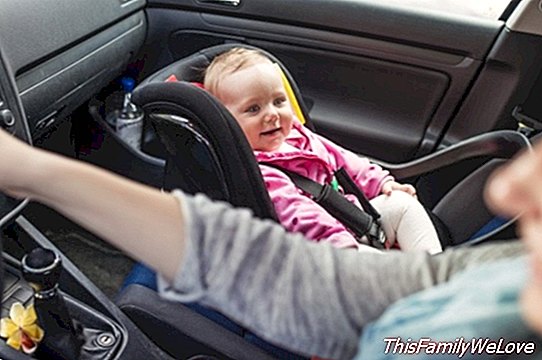51% of parents do not know the regulations on child safety seats

Parents worry about the child safety, especially, on the road. However, the Britax Report on The State of Security shows that, despite the fact that car accidents represent the greatest concern regarding child safety for half of European parents, there is considerable confusion about what child safety seat choose and how to install it so that children are properly protected.
Ignorance or ignorance in child safety
Using the child safety seat correctly is essential to avoid injury or problems in the event of an accident. In this section, attention is drawn to the lack of information that parents have on some of the best child safety systems, such as Isofix or i-Size.
1. Isofix. Almost half (44%) have never heard or do not understand the benefits of ISOFIX technology, a technology that defines standard anchor points that minimize errors in the installation while improving protection.
2. i-Size. Despite the fact that it has been in force since July 2013, more than half of the parents (51%) do not know the i-Size legislation, a European regulation on safety seats that improves the protection of children.
Do parents comply with car safety regulations?
The report reveals that there is a lack of connection between the good intentions of the parents and compliance with the safety rules when they take their children in the car at each stage of the trip:
1. When do I have to change my chair? Nearly a fifth of parents admit that they simply do not know the proper time to change their child's safety seat for one of a higher group.
23% would incorrectly choose the time to change it motivated by the arrival of a new child or to have more space in the car (21%).
2. How to properly install a safety seat?Installing a safety seat is a daunting task and only a third of parents (38%) receive help from qualified personnel.
3. Always with a safety seat? A third of parents (33%) openly admitted traveling with their child without an appropriate safety seat, and most of them (44%) did so because they did not have one on hand. 35% of parents confessed to having done so at least five times, and one in ten in more than twenty trips.
4. Speed limit. Almost one third (31%) confessed to having exceeded the speed limit while traveling with a child in the car, with a higher percentage of fathers than mothers (38% versus 25% respectively)
5. Divert attention to the steering wheel. One fifth (21%) admitted having eaten driving and 16% had used the mobile phone without the hands-free being at the wheel and with their children on board, which translates into a lack of attention to the road.
Parents and child safety seats
1. The purchase of the safety seat. Almost a quarter (24%) of European parents buy the first car seat once the baby is born, even if it is recommended to buy it beforehand and in some countries it is illegal to leave the hospital without it.
2. Compatibility between the safety seat and the car. One in ten (9%) parents admit that they did not check if their car seat was compatible with their car before making the purchase. A fifth (19%) consulted on the internet to get their bearings, but did not check it physically before buying it.
3. Time for the election. Almost one fifth (18%) of the parents spent less than an hour learning about the different options available for the first safety seat, while 67% admitted that they spent more time buying their phone or electronic tablet.
Marisol Nuevo Espín




